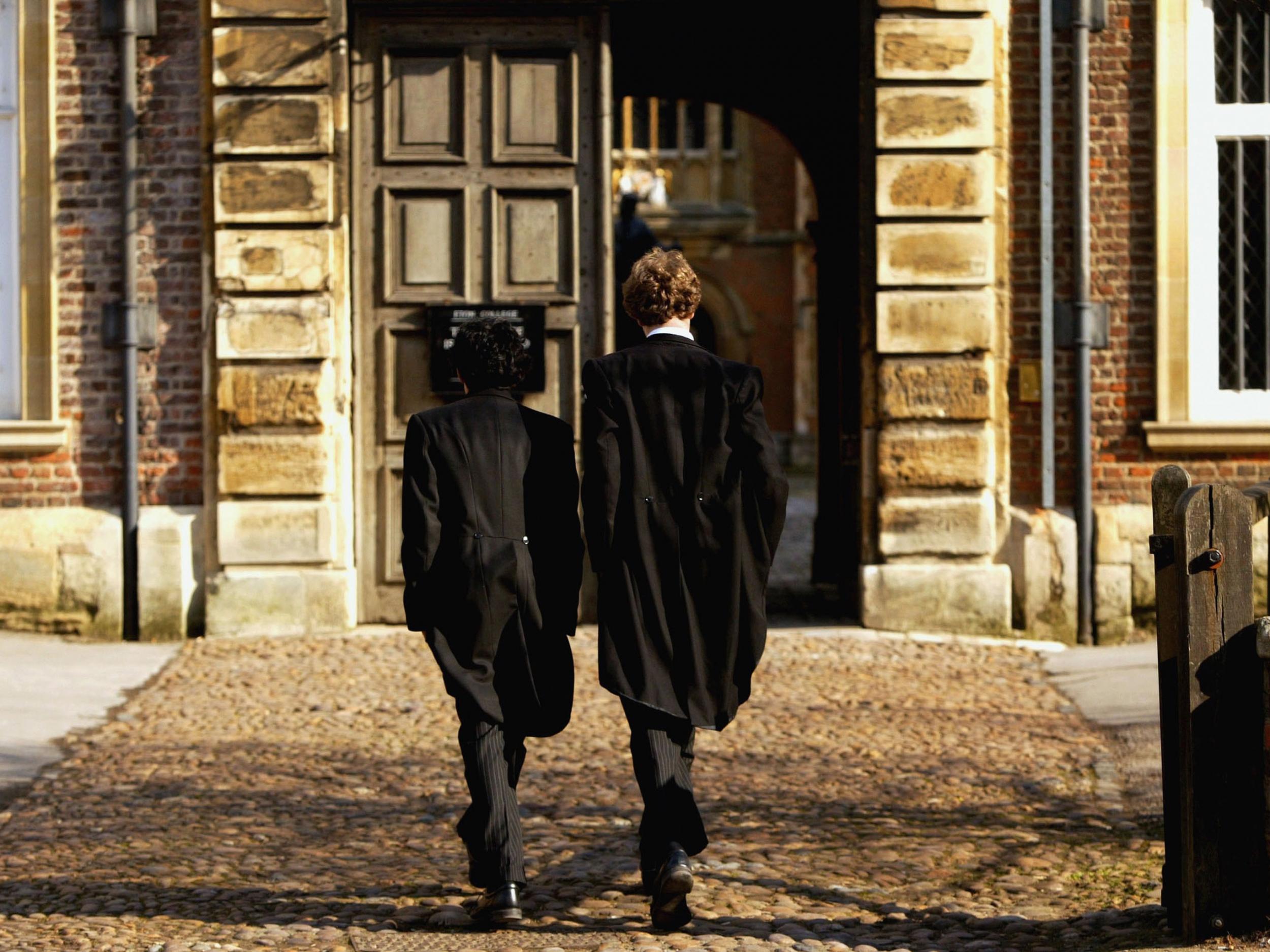Private school fees reach £17,000 per year on average
'It is important to remember that these families save the government money by not taking up state school places'

Your support helps us to tell the story
From reproductive rights to climate change to Big Tech, The Independent is on the ground when the story is developing. Whether it's investigating the financials of Elon Musk's pro-Trump PAC or producing our latest documentary, 'The A Word', which shines a light on the American women fighting for reproductive rights, we know how important it is to parse out the facts from the messaging.
At such a critical moment in US history, we need reporters on the ground. Your donation allows us to keep sending journalists to speak to both sides of the story.
The Independent is trusted by Americans across the entire political spectrum. And unlike many other quality news outlets, we choose not to lock Americans out of our reporting and analysis with paywalls. We believe quality journalism should be available to everyone, paid for by those who can afford it.
Your support makes all the difference.Private school fees have risen by more than the rate of inflation, with families now paying out more than £5,700 a term on average.
Average fees have risen by 3.4 per cent compared to last year, according to the Independent Schools Council’s (ISC) latest annual census. Inflation stands at 2.5 per cent.
The ISC said this was the lowest rise since 1994, adding that many pupils who attend its schools receive financial assistance.
But the figures were also likely to spark fresh debate about the cost of private school education.
The census, based on a survey of 1,326 independent schools conducted in January, shows that overall average fees are now £5,744 a term.
There are differences between school types, with boarding school costs the highest at £11,228 a term on average, up 4.3 per cent on last year, while day fees for boarding school are £6,250 (up 2.9 per cent).
Parents looking to send their child to a private day school would be looking at paying £4,618 a term on average, up 3.4 per cent on last year.
These figures cover sixth form, senior and junior schools, with the increases in fees based on ISC schools that completed the survey both this year and last.
Among day schools, the majority charge between £3,000 and £5,000 a term, with 18 charging under £2,000 and 22 charging over £7,000, the census says.
It also shows that 33 per cent of pupils receive financial help with their fees, mainly through bursaries, scholarships and other support offered by their schools.
Nearly £1bn was spent on providing financial aid of all types, the census shows, with a child receiving around £5,658 on average.
ISC general secretary Julie Robinson said: “Affordability is of course a concern for schools and they work hard to remain competitive whilst facing pressures on salaries, pensions and maintenance and utility costs.
“Many schools have extended bursary provision and this year almost £400m was provided in means tested fee assistance for pupils at ISC schools. Currently a third of pupils at our schools benefit from reduced fees.”
The census also shows a slight rise in the numbers of pupils attending co-educational schools (75.7 per cent compared to 75 per cent last year).
In general, private school numbers are at their highest levels, the ISC said, with 529,164 youngsters being taught at its schools, up from 522,879.
Children from overseas account for 5.4 per cent of pupils, up from 5.3 per cent last year.
Ms Robinson said: “Parents choose independent schooling for their children because they value the broad all-round education on offer, including academic excellence, learning opportunities outside the classroom and outstanding pastoral care.
“With pupil numbers at their highest since records began in 1974, it’s clear an independent education is the preferred choice for many families. It is important to remember that these families save the government money by not taking up state school places.
“ISC schools save the taxpayer £3bn a year from students not being in state education and contribute £9.5bn to overall UK GDP.”
Grace Moody-Stuart, director of the Good Schools Guide Education Consultants, said: “Apparently only two things in life are certain, death and taxes. Well, add to the list above inflation annual increases to school fees.
“Another year passes and we bear witness to another hike in independent school fees. It is encouraging to see schools are putting more money into bursary schemes than ever before, but we know that hard working families increasingly consider private education to be beyond their reach.
“Independent schools are now in pursuit of shiny new buildings and facilities with which they can attract their next intake of pupils, but the money also goes towards smaller class sizes and maintaining the high level of teaching which has become synonymous with UK private education. And, while becoming scarce in the state sector due to funding cuts, non-teaching posts such as those relating to careers advice and pupils’ wellbeing are also on the increase at independent schools."
She added: “Parents pay huge sums of money for a complete schooling experience, so much of which takes place outside the classroom walls.”
Press Association
Join our commenting forum
Join thought-provoking conversations, follow other Independent readers and see their replies
Comments